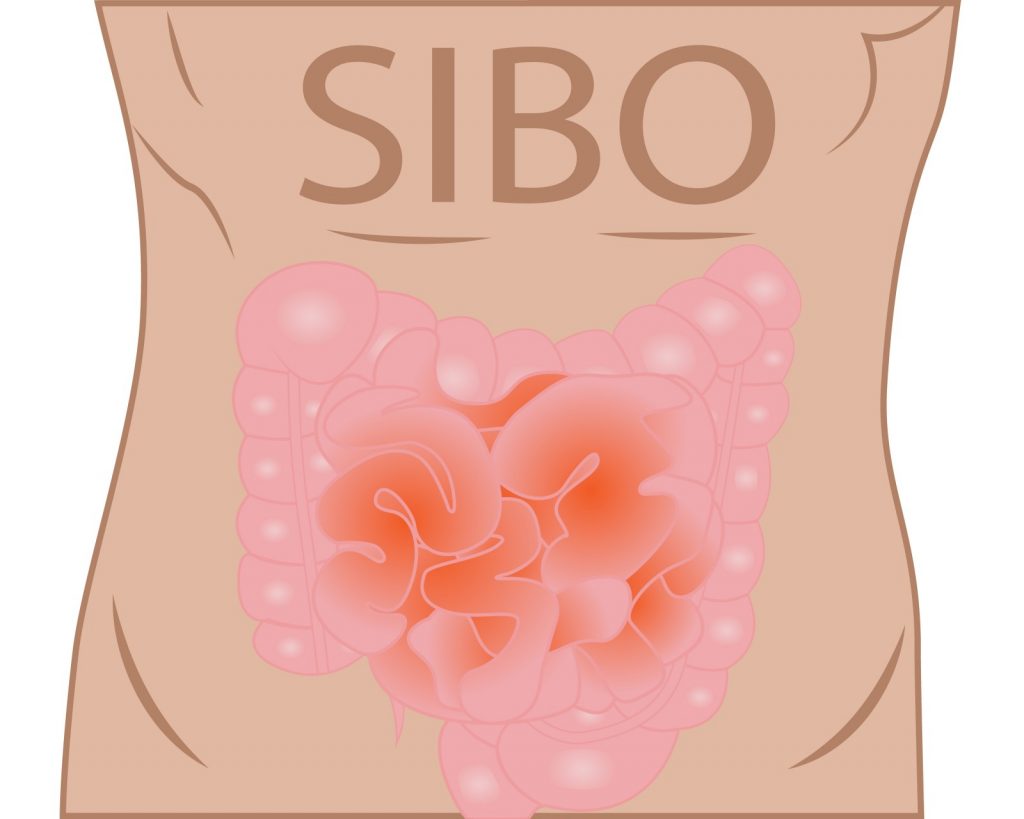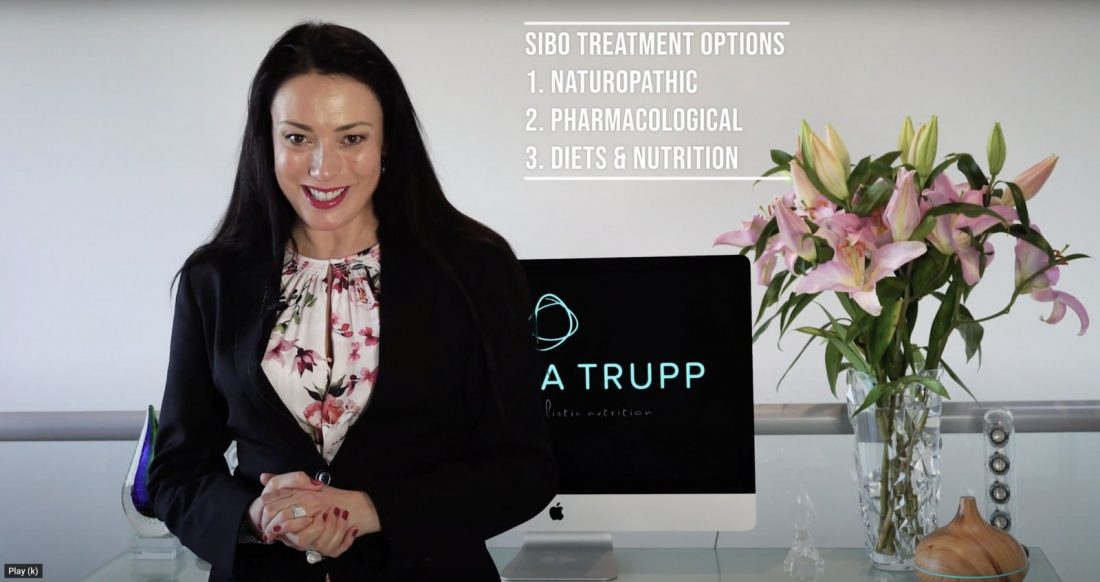How to treat SIBO naturally?
This week I would like to dive into a complex topic of SIBO treatment.
If you suffer from SIBO (Small Bacteria Overgrowth) or IBS (Irritable Bowel Syndrome) – this is a blog post for you.
Disclaimer: This is not medical advice, but it is information you can use as a conversation-starter with your physician at your next appointment.
SIBO stands for small intestinal bacteria overgrowth.
Let’s look at its common symptoms and causes first and then we proceed to testing and the treatment options.
I will be going through the naturopathic options, the pharmacological options and the diets of choice.
The treatment of SIBO comes in different stages and it is complex. If it happens you are affected by SIBO, this information will be helpful to you.
How do you know if you have SIBO?
The main symptoms of SIBO are those of Irritable Bowel Syndrome (IBS).
SIBO has been shown to exist in up to 84% of IBS patients and is therefore theorised to be the underlying cause. You may be interested to watch my earlier video on IBS via THIS LINK.
So if it happened that you got diagnosed you with IBS, based only on your symptoms but you didn’t run a test to see if you have SIBO… now you know you’ve got to get yourself tested to determine if you have SIBO and what type of SIBO is it.
Depending on the type of bacteria overgrowth in your small intestine, the treatment option may differ and you are looking at personalised treatment.
Main symptoms of SIBO are:
- Abdominal bloating, or excessive gas
- Abdominal pain, cramps
- ConstipatDiarrhea, or both
- Heartburn (Reflux or GERD)
- Nausea
Associated symptoms may also be:
Leaky Gut Symptoms like
- Food Sensitivities
- Headaches
- Joint Pain
- Fatigue
You also may experience:
- Skin symptoms (such as eczema or rashes)
- Respiratory symptoms (such as asthma)
- Mood symptoms (such as depression)
- Brain symptoms (such as Autism)
- Malabsorption Symptoms like fatty stools, Anemia (Iron or B12 deficiency)
- And Weight Loss
So now let’s look at what is Small Intestine Bacterial Overgrowth?
It is an accumulation of wrong bacteria in the small intestine. It is the overgrowth of bacteria that normally live in other parts of gastrointestinal tract like large intestine, but have abnormally overgrown in wrong location like small intestine.
Unlike your large intestine or colon, your small intestine normally has relatively few bacteria due to rapid flow of contents and the presence of bile.
You may be aware that small intestine is responsible for most of the digestive processes, absorbing almost all of the nutrients you get from food into your bloodstream.
The walls of the small intestine make digestive juices, or enzymes, that work together with enzymes from the liver and pancreas to do this.

What are the risk factors and causes of SIBO?
Sometimes a cause of small intestine overgrowth may be food poisoning, structural abnormalities to the small intestine, injury to small intestine, stress and other chronic diseases such as Crown’s disease or scleroderma. Usually you may find it is a combination of few different risk factors.
How do you Diagnose SIBO?
There are several tests available and several SIBO presentations, such as Hydrogen dominant SIBO with typically diarrhoea symptoms, Methane Dominant SIBO with typically constipation. You need to get tested till your practitioner understands what your specific type of SIBO is and what is its case. The treatment will depend on the type of SIBO you developed.
We use breath tests to diagnose SIBO.
Breath tests may be done at a facility with a breath testing machine, such as a lab, hospital or doctor’s office, or can be done at home with a kit. Take home kits can be provided by either a practitioner, the facility or by a mail order laboratory.

There are two types of breath tests used.
- Lactulose Breath Test (LBT)
- Glucose Breath Test (GBT)
How do we treat SIBO?
You can treat SIBO with antibacterial treatment of your choice;
- Herbal antibacterials,
- Pharmacological antibiotics
- Diets
- Herbal treatment usually demands 4 to 6 weeks of your time commitment
You can use the combination of remedies such as:
- Golden Seal
- Oregon grape
- Berry berry herb
- Neem leaf
If you use Golden Seal make sure you use higher than normal dosage, I recommend using 5 grams of this herb a day, for 4 weeks.
Other antimicrobial that are very effective are: A.D.P. Biotics Research Digestive Formula, the dosage would be 6 tablets a day for 4 weeks.
If you use Neem Leaf Plus, which is also potent de-worming medication, have 2 tablets a day for 4 weeks.

- Antibiotic treatment usually demands 2 weeks of your time commitment
For Hydrogen – Predominant SIBO – the best use is Rifaximin taken for a course of 14 days.
For Methane – Predominant SIBO – you may add metronidazole and do 2 courses of antibiotics in combination with Rifaximin at the same time.
Riflaximin antibiotic predominantly stays in small intestine, and i=is very safe to use, it doesn’t cause antibiotic resistance, it decreases inflammation. It is one of the most commonly used antibiotic for SIBO and most effective too with minimal side effects and most efficacy in treatment.
You could also try Nitozoxanide or Alinia which is antiparasitic and antibacterial drug that has been used with success on many types of SIBO.
I understand that I can antagonise some of my followers with mentioning antibiotic treatment for gut related issues in my video.
The general tendency in natural treatments options is to preserve your gut microbiome and not to use antibiotics. However my job is also to be objective, resourceful and give you all helpful information. If you fail to recover from SIBO using herbal antibacterial treatment. Please consider this option or even better an Elemental Diet as an alternative.

- Elemental Diet. (Taken for 2 weeks).
An elemental diet is comprised of easily digestible formulas that come in liquid or powder form and provide all the nutrients your body needs.
It’s literally meal replacement drink that you take for a duration of two weeks. This treatment is usually followed under the supervision of a trained medical professional.
If you consider this option, make sure you contact me for more information, scripts and orders via my website. This treatment method is the most successful in eliminating gas and bacteria from your small intestine in comparison to medication, whenever it is herbal or pharmaceutical. This treatment makes the bad bacteria that caused you SIBO die off from starvation.

- Other Diets:
All dietary treatments for SIBO strive to reduce food sources for the bacteria. They seek to feed the person but starve the bacteria. Our diet has a significant impact on our intestinal bacterial population.
Bacteria primarily eat carbohydrates, so all the recommended diets to treat SIBO decrease carbohydrates to try to reduce the bacteria and especially the gas they produce, by limiting their food supply.
The only carbohydrate that bacteria do not eat much of, is insoluble fiber.
The established SIBO treatment diets are
- the Specific Carbohydrate Diet (SCD),
- the Gut and Psychology Syndrome Diet (Gaps Diet),
- the Low FODMAP Diet (LFD)
- or a combination of these diets such as SIBO Specific Food Guide and it’s variant the SIBO Bi-Phasic Diet.
The established prevention diets include all the above plus the Cedars-Sinai Diet.
Many practitioners also use The Fast Track Diet for IBS and various forms of the Paleo Diet.
Depending of your circumstances and ability to cook, I noticed that diet is often a part of a treatment that needs to be adjusted, tailored and guided as you progress with your treatment. I have developed many video recipes that can assist you in your healing journey. No matter which diet we decide to follow.
Nutritional Support in SIBO Treatment:
Zink,
These nutritional’s may be given at different stages of your treatment to you.
These were your SIBO essentials. I would strongly advise you to have a skilled practitioner who understands SIBO overlooking your healing process. You need to be properly tested, have the best treatment option chosen for you and you need to be guided as per what diet and at what stage of healing should be introduced. SIBO can be a chronic condition and is also known to relapse. Right practitioner will be able to guide you through your healing process.
If you would like a personalised treatment, do not hesitate to book one on one consultation with me via my website Dorotatrupp.com.au
And to learn more about digestive wellness and natural health, subscribe to my YouTube Channel and sigh up for my newsletter, where I will share with you more in depth information, recipes and special offers.
Stay well and enjoy your day!


